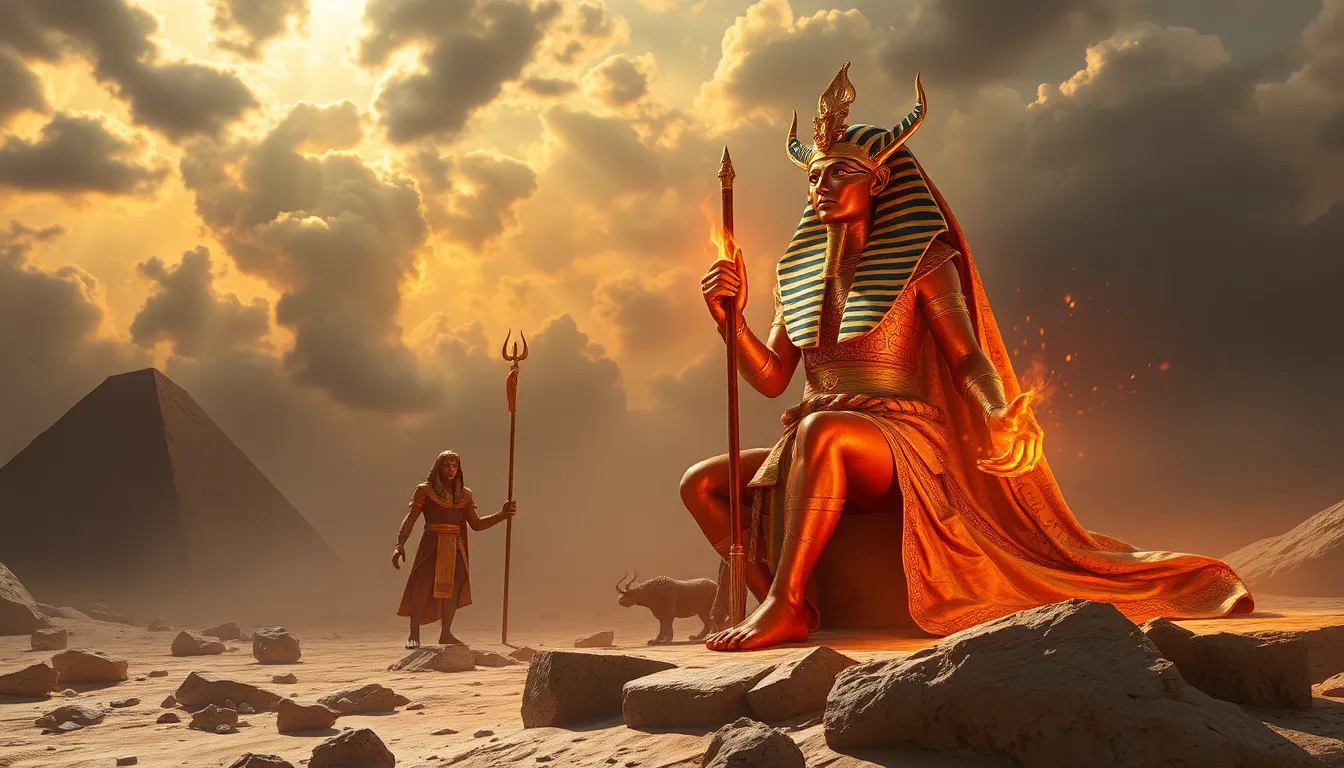The Price of Immortality: Divine Retribution in the Afterlife
I. Introduction
Immortality, the concept of living forever, has fascinated humanity since the dawn of time. The allure of eternal life beckons many, promising endless experiences, knowledge, and power. However, intertwined with this desire is the notion of divine retribution—punishments meted out by the gods or the universe for actions taken during mortal existence.
This article aims to explore the complex relationship between the pursuit of immortality and the consequences that may follow in the form of divine punishment. By examining historical perspectives, theological underpinnings, psychological costs, and modern interpretations, we can better understand the price that may come with seeking eternal life.
II. Historical Perspectives on Immortality
Across civilizations, immortality has been a recurring theme in myths and beliefs. Ancient Egyptians revered the afterlife, believing in a journey that determined one’s eternal fate. The concept of the soul, or “Ba,” emphasized that one could achieve eternal life through moral living and adherence to the gods’ will.
- Egyptian Mythology: The afterlife was seen as a continuation of life on Earth, where the deceased would face judgment in the Hall of Maat.
- Mesopotamian Beliefs: The Epic of Gilgamesh explores the hero’s quest for immortality and the realization of its futility.
- Greek Myths: Figures like Tithonus and Achilles highlight the duality of immortality and suffering.
These narratives illustrate that while the desire for immortality exists, it often comes with the caveat of divine retribution, emphasizing moral responsibility.
III. Theological Underpinnings of Immortality
Religious texts across various faiths provide insights into the nature of eternal life and the corresponding consequences for one’s actions. In Christianity, the Bible speaks of eternal life as a gift for the righteous, while sin leads to separation from God.
- Judaism: The concept of “Olam Ha-Ba” (the World to Come) emphasizes righteous behavior in life as a pathway to immortality.
- Buddhism: The cycle of rebirth (samsara) reflects the moral karma that influences one’s eternal journey.
- Hinduism: The pursuit of moksha represents liberation from the cycle of death and rebirth, contingent on moral living.
These doctrines frame the pursuit of immortality as not merely a quest for everlasting life but as a moral journey with significant implications for one’s soul.
IV. The Psychological Cost of Immortality
While immortality may seem desirable, it can impose profound psychological burdens. The weight of eternal existence can lead to existential dread, loneliness, and fear of divine judgment or retribution.
- Mental and Emotional Burdens: The endlessness of life can create a sense of stagnation and despair.
- Fear of Divine Judgment: The anxiety of facing repercussions for one’s actions can overshadow the joys of immortality.
- Case Studies: Literary figures like Dracula and historical figures like Ponce de León illustrate the tragic consequences of pursuing eternal life.
These examples highlight that the quest for immortality can lead to a paradox—what one seeks may not ultimately bring happiness.
V. Literary and Cinematic Representations
The themes of immortality and divine retribution have been explored in various literary and cinematic works, reflecting societal fears and fascinations. Notable examples include:
- Mary Shelley’s “Frankenstein”: Explores the consequences of playing God and the quest for eternal life.
- J. K. Rowling’s “Harry Potter”: The concept of the Deathly Hallows and the curse of immortality through the Philosopher’s Stone.
- Films like “The Fountain”: Investigate the eternal struggle against death and the resultant emotional toll.
These narratives often emphasize sacrifice and the moral consequences of seeking immortality, shaping public perceptions of the topic.
VI. Philosophical Implications of Eternal Life
The pursuit of immortality raises profound ethical dilemmas. Questions regarding the nature of justice in the afterlife and the value of life versus eternal existence fuel debates among philosophers.
- Ethical Dilemmas: What moral responsibilities accompany eternal life? Should one be allowed to live forever regardless of their actions?
- The Concept of Justice: How is justice served in the afterlife? Are the rewards and punishments justly aligned with one’s earthly actions?
- Value of Life: Does eternal existence devalue the significance of life experiences?
These philosophical inquiries challenge the desirability of immortality, urging a deeper consideration of its implications.
VII. Modern Interpretations and Technological Advances
In contemporary society, scientific advancements in life extension, such as genetic engineering and anti-aging technologies, raise ethical questions about the pursuit of immortality. The intersection of technology and traditional beliefs is increasingly relevant.
- Scientific Advancements: Innovations like CRISPR and regenerative medicine offer potential pathways to extend life.
- Contemporary Beliefs: Many people still hold onto traditional views of the afterlife while grappling with modern interpretations of immortality.
- Technological and Spiritual Intersection: The merging of technological pursuits with spiritual beliefs complicates the quest for immortality.
This evolution reflects changing societal norms and the ongoing quest to reconcile ancient beliefs with modern capabilities.
VIII. Conclusion
The intricate relationship between immortality and divine retribution reveals deep-seated fears and desires within humanity. While the allure of eternal life is undeniable, it often comes with the weight of moral consequences that can lead to divine punishment.
As we reflect on these concepts, it is essential to consider the societal implications and the lessons learned from history, philosophy, and literature. Ultimately, the pursuit of immortality is a multifaceted journey that invites us to ponder not just the desire for eternal life but also the responsibilities that come with it.




